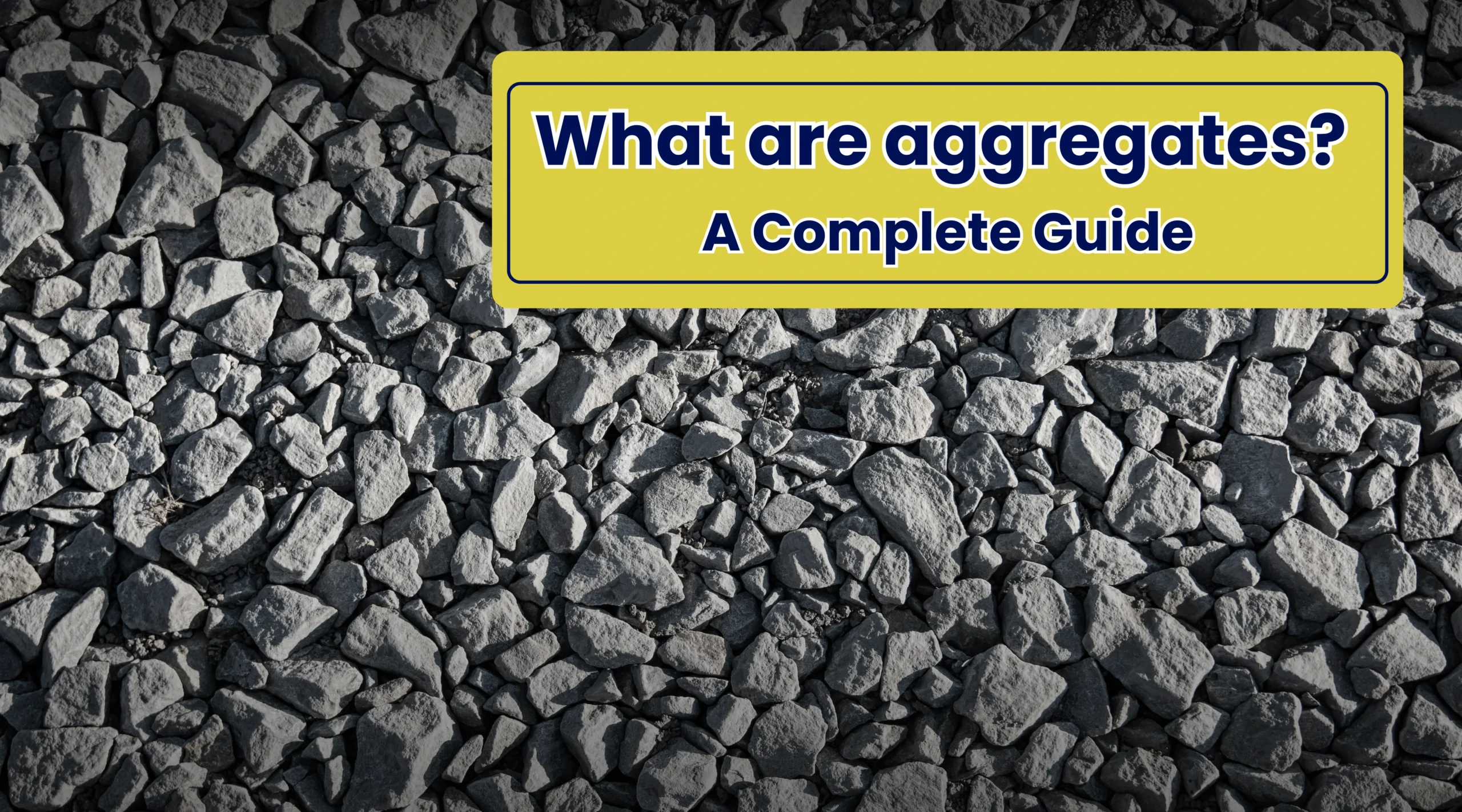Aggregates are the unheralded workhorses of the construction industry. 70 to 80 percent of concrete volume is made up of aggregates. They are essential to the durability, strength, and security of a building. These are the most important factors while mixing mortar and concrete. They occur naturally in rocks or are made in factories. Modern buildings wouldn’t be able to meet the structural performance standards without high-quality aggregates.
What Are Aggregates?
Aggregates are more or less granular materials; for example, they may be crushed stone, sand, gravel, synthetic substitutes, etc. While aggregates can be used on their own, they are, of course, most typically employed as fillers in conjunction with a binder, like cement. Natural sources of aggregates come from sedimentary, igneous, and metamorphic rocks, whereas artificial sources of aggregates come from materials like blast furnace slag and recycled concrete. Beyond the structural role of aggregates, they are some of the most reliable materials in the industry for a number of reasons: aggregates have a relatively simple design and are easy to store, they need no special provisions for storage, and they change as much as the climate.
Categorization according to geological origin.
Aggregates can be classified based on their origin: natural and artificial.
Natural aggregates include river sand, crushed gravel, and crushed stone from rivers, mountains, and quarries. Before using these naturally occurring aggregates in concrete and other construction needs, many of these aggregates often require washing and screening in order to remove impurities.
Also, industrial by-products to use as artificial aggregates are blast furnace slag and crushed brick. Although they have been made into concrete for some applications (e.g., precast concrete and fill under foundations), they are not recommended for when reinforcement is used.
Sieve Size Categorization.
The properties and strength of concrete largely depend on the size of the aggregate.
Coarse aggregates are typically crushed stone or gravel that remains on a 4.75 mm sieve. They are essential in providing the mass and skeleton of concrete structures.
Materials such as river sand or manufactured sand (M-sand) are examples of fine aggregates, which go through the same sieve size. These are essential for the concrete’s smooth finish and workability.
Graded and all-in aggregates are appropriate for certain applications where a uniform distribution of particle sizes is needed because they contain a blend of fine and coarse particles to improve compaction and decrease void spaces.
Groupings according to shape.
The aggregates’ interlocking qualities and, eventually, the concrete’s strength are influenced by their shape.
Rounded aggregates have smooth surfaces and little void content; they are frequently found close to seashores and riverbeds. They require less cement paste, but they don’t bond as well.
For basic concrete applications, uneven aggregates that are somewhat angular are preferred because they provide the most interlocking. Angular aggregates, with their relatively rough texture and sharp edges, will be chosen for high-strength applications such as road work because they provide greater interlocking.
Flaky aggregates and wanting aggregates for structural work are avoided as they reduce strength and workability.
Classification Based on Unit Weight.
Aggregates may also be categorized by density or unit weight, depending on what type of structures are being constructed.
Heavyweight aggregates like magnetite and baryte are used in applications like radiation shielding for nuclear power plants and hospitals.
Lightweight aggregates, like expanded clay and pumice, are perfect for lightweight concrete blocks, insulating layers, and non-load-bearing structures.
The Value of Selecting the Correct Aggregate.
A construction project’s quality, cost, and lifespan are all greatly impacted by the aggregate selection, which is not merely a technical one. Using substandard aggregates can create excessive shrinkage, cracking, and even failure. On the other hand, the right type and grade of aggregate will provide durability, save cement, and ensure the performance of the structure for the intended period.
Aggregates from Builders9—Quality You Can Trust At Builders9, we understand the critical role aggregates play in construction.
For this reason, we provide a large selection of premium aggregates, including coarse, fine, natural, and artificial, that are sourced from reliable vendors and have undergone performance testing. Our platform offers the ease of ordering premium building supplies online, with prompt delivery and affordable prices throughout Hyderabad, regardless of your status as a civil contractor, real estate developer, or individual homeowner.
Check out our product line now if you’re planning a project and want the best building supplies. You’re building with confidence when you use Builders9, not just purchasing supplies.

